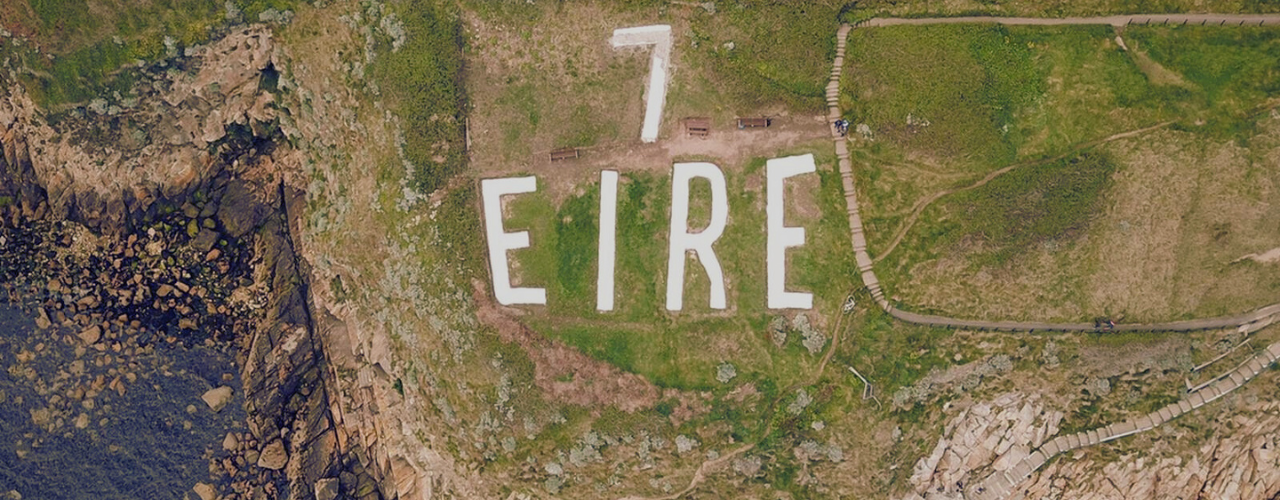
Russia’s resurgent invasion of Ukraine, has made Ireland’s ability to defend its air and sea-space a live issue, and generated much debate about our neutrality.
It seems that no-one can agree on what neutrality means. A book by an Irish journalist which was published this year suggests that Irish neutrality is a “myth” and that when-push-comes-to-shove, we will have to take sides. But for almost a century, Irish policy has been clear that our neutrality is not impartiality. We will take sides. We are on the side of Ukraine, for example. But we have determined that the limits of our support do not extend into battle.
Media articles about this discourse insist that Ireland has a “head-in-the-sand” attitude to defence and that neutrality “means whatever the government of the day wants it to mean”. But there has always been a robust rebuttal of this within the Christian tradition, which it has maintained for millennia: what is more blind to reality than the belief that you can kill your way to peace? After the devastation of the world wars, Christians have been increasingly clear in their position that war should never happen again.
Even if you do not share that theological perspective, it is worth examining what is hidden behind the line of argument expounded in our national press. In a Republic, what else should we expect but that the government of the day enacts our principles by adapting to changing real-world contexts?
The flawed nature of this reasoning is illustrated by the fact that it cannot be applied to other aspects of our policy-making. The State takes complex positions in every realm of political life. Being for one thing does not mean we are bound to be against another. “True” neutrality is framed by this discourse as a never-existing – in fact impossible-to-exist – isolation from the worries and travails of this world. There is absolutely nothing illogical about finding a practical way to implement a treasured principle. We can be an active member of the global community and determine from our own context that this does not extend to military alliances and participation in military projects. The insistence that we comply with some pre-determined definition from the realm of academic international relations departments is very peculiar. The demand for rigorous philosophical consistency on just this point is, well, deeply inconsistent.
This gets to the heart of why so many people are discomfited by the Forum on International Security Policy. Why isn’t it a Citizen’s Assembly, as was earlier discussed? In a Republic, the government responds to the will of the people. And the will of the people consistently has been that Ireland maintain neutrality, even if it is sometimes under-reported. The average citizen may not know their jus ad bellum from their jus in bello, but they know Irish soldiers have no business being involved in either and are likely to think that because of that, Irish soldiers are uniquely placed to help clean up the messes made, post bellum.
The Jesuit Centre for Faith and Justice will be making a submission to the Forum, in a large part because people contacted us and asked us to contribute. Although Christian thinking on war and peace is profound and deep, institutionally, the church is not well-placed to intervene in such conversations. Apart from the Mennonites and the Quakers, the details of defence policy is not really part of church’s core mission.
But there is one element of the discussion that would get all the Christian choir together and singing in harmony: that any conversation about our national security which does not foreground the climate collapse and biodiversity breakdown is an exercise in futility. The Kyoto Protocol excluded military activity from carbon accounting. While the Paris Accords of 2015 removed this clause, it left reporting entirely voluntary. As a result, everything that armies do is off-the-books in terms of the ecological disaster. Armies are carbon intensive.
In conversation on this topic, it becomes clear that most Irish people view neutrality not as a refusal to participate in the struggle for justice, but as a positive commitment to participate in certain ways. That means we don’t build an army capable of joining an invasion force. But that doesn’t stop us from building an army well suited to peacekeeping duties. The changes that are required for our national defence should be guided by our ecological reality. That means we should constrain our investment to keep carbon to a minimum, we should mandate thorough reporting on an annual basis, we should exclude the production of arms and weaponry from our economic agenda, and we should train and equip our armed forces to be a support to civil relief agencies in the moments of crisis that will emerge as a result of the intensifying climate catastrophe.
All this is fully in harmony with a neutrality that is not isolationist, impartial or utopian.
Irish neutrality is a real tradition, not a myth. That it is not absolutist and cannot be reduced to a formula is a strength, not a weakness. It is informed by the nation’s history. It is sustained by how often we see nations engage in insane and immoral and wasteful military misadventures, including our closest allies. It is pragmatic in the best sense of the word: it works.

